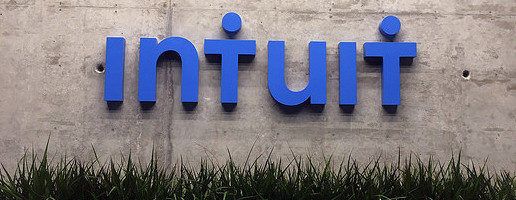Intuit: Embracing the “Innovator’s Dilemma”

Intuit is a digital winner as it found a way to fully embrace the innovator's dilemma, and has been successful in anticipating disruptions in its industry and organically responding to them.
Much harder than disrupting existing markets as a startup is to disrupt markets as an incumbent to continue profitable and relevant. Very few companies can claim that. Intuit has managed to do so in the past 36 years, and the company is continuously leading the innovation in its industry and winning in every disruption.
Digital Winner
Founded in 1983, Intuit offers financial management solutions for individuals and small businesses (like TurboTax, QuickBooks, and Mint). The firm faced numerous disruptions in its industry in the past three decades, as the creation of windows, the advent of the internet, the explosion of smartphones, the transition to cloud-based services, and the use of artificial intelligence (AI). Most of its long-time competitors perished in the process; but Intuit has flourished.
In 2019, Intuit grew revenue to $ 6.8 billion, up 13 percent year-over-year, with a net income of $1.5 billion [1], the company serves 50 million customers worldwide. Called by Forbes Magazine, the “Tom Brady” of its industry [2], Intuit has succeeded in defeating both startups (as Xero [3]) and tech giants (as Microsoft) by incorporating innovation it its DNA as a continuous process of challenging and reinventing products, services, and the organization itself.
The company’s first product, Quicken, a personal-finance software, was created in 1983 and had shortly to be redesigned for the Windows platform. Its business products (Quickbooks and Turbo Tax) were launched in the 1990s, and their web versions have been developed on the internet early days, followed by a mobile version in the early 2000s and a transition to a cloud platform in 2012. In 2016, the company sold Quicken to focus entirely on the cloud to respond to a product launched by Xero.
The innovator’s dilemma
How Intuit manages to continuously win the innovation game? How did it manage to make tough decisions in the process, like selling Quicken and cannibalizing its main product?
According to Clayton Christensen’s theory of disruptive innovation, the biggest challenge for incumbent firms is to decide to focus or not in new technologies or business models that emerge initially as unprofitable or with lower quality, but that can quickly disrupt the industry [4]. Intuit found a way to break this dynamic and fully embrace the innovator’s dilemma: the company has been successful in organically anticipating disruptions in its industry.
What is the recipe?
The Intuit’s recipe is hard to define in a single factor, so here are the most important:
Deep learning with Customers
Intuit deep dives into the experience of its users to identify ways to improve existing services and anticipate needs. The “Follow me Home” program, for example, includes 10,000 hours of visits annually to real customers. These deep dives help not only improving existing products but understanding how customers will respond to new solutions.
Product Innovation:
The company invests around 25% of operating expenses in research and development. A significant commitment for a mid-size company in the accounting and financing business, but that sends a clear message that the success of the company relies on continuously finding new solutions.
Strategy Refresh: “Change before it needs.”
A continuous structural review of the company’s strategy every three years, identifying future trends that guide priorities and lead changes in the organization. During the strategy refresh, top management is willing to go through painful transformations to preempting competitors [5].
The last review took place in 2017 and Intuit mobilized 100 teams to review research, trends, and customer feedbacks on AI and machine learning and reallocated $ 1billion to address the opportunities.
Managerial techniques to prevent change-killers
In my opinion, this is most important: Intuit has implemented an organizational culture that fosters risk-taking and works to defeat every focus of resistance. Implementing an “agile” managerial style, which includes:
- Independent discovery teams are empowered to identify market changes and propose solutions and make decisions quickly. This help prevent resistance from top executives.
- Cross-fertilization with other industries, for example, in the early stages of mobile-based solutions, the executives met with other companies making money on mobile.
- Transparence in everything, including the mistakes the CEO makes. Staff meetings are broadcasted to all 8,200 employees.
Embracing Disruption
The innovator’s dilemma is knocking on the door of executives every day; the question is how leaders can embrace it and create organizations that are ready to make tough decisions. In that sense, we have a lot to learn with this company that has been very successful in escaping the innovator’s dilemma and winning in the digital transformation.
[1] “Intuit Fourth Quarter Revenue Up 15 Percent, Full Year Up 13 Percent.” https://investors.intuit.com/news/news-details/2019/Intuit-Fourth-Quarter-Revenue-Up-15-Percent-Full-Year-Up-13-Percent/default.aspx.2019.
[2] Fortune. “How Intuit Reinvents Itself.” https://fortune.com/2017/10/20/how-intuit-reinvents-itself/.October, 20, 2017.
[3] A New Zealand startup offering a cloud based solution to compete with the pc-based QuickBooks.
[4] Christensen, Clayton M. The Innovator’s Dilemma: When New Technologies Cause Great Firms to Fail. Reprint edition. Boston, Massachusetts: Harvard Business Review Press, 2016.
[5] Orchestrating Transformation. “What Intuit Gets Right About Digital Transformation,” March 25, 2019. https://orchestratingtransformation.com/what-intuit-gets-right-about-digital-transformation/.



Hi Reinaldo! I didn’t realize how dominate Intuit has been until your reference as them being the “Tom Brady of their industry”. Thanks for that great reference!
On a more serious note, I’m pretty shocked by the statistic that their R&D spend is 25% of their operating expenses. That sounds pretty high and I wonder how they efficiently deploy such a large amount of capital towards research. Besides the network effects, I would not guess their products’ competitive advantages to be defensible, so a high R&D spend must be necessary to remain relevant.